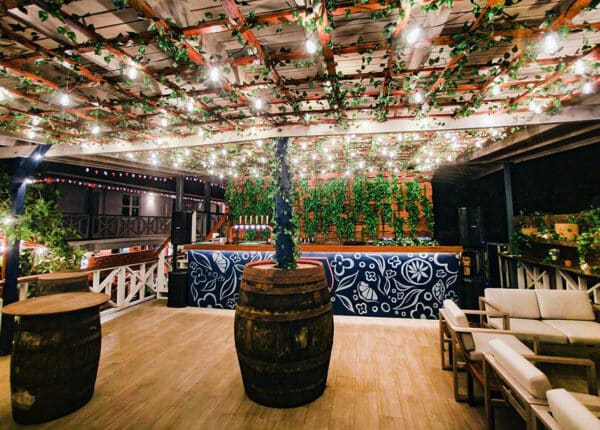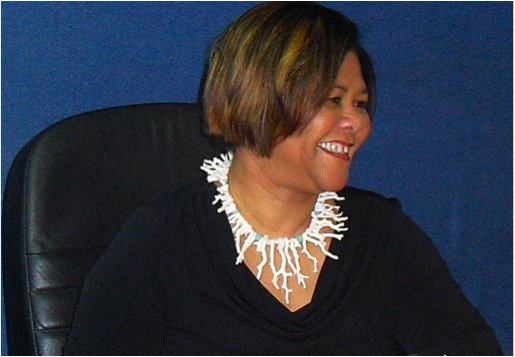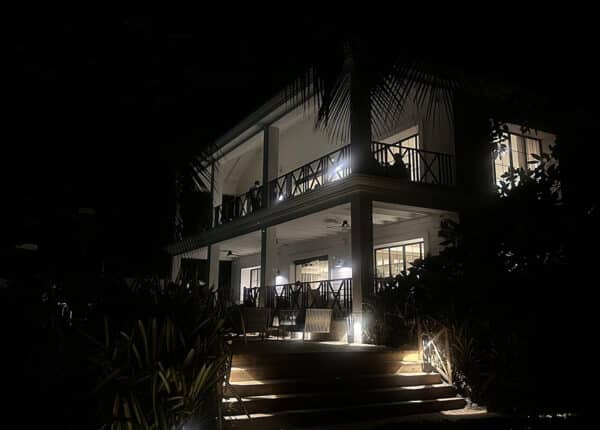By Alexander Britell
One of Jamaica’s foremost media specialists, Dr Marcia Forbes has most recently been exploring the ways technology impacts Jamaican society and culture. Her first book, Music, Media & Adolescent Sexuality in Jamaica, looked at the ways traditional media – from television to radio, influenced the attitudes of Jamaican youth. Her newest book project is Streaming: Social Media, Mobile Lifestyles, which will look at the power of social media in the country and how it is affecting Jamaican society. To learn more, Caribbean Journal talked to Forbes, who is the co-owner of multimedia company Phase 3 Productions, about Streaming, the rise of social media in Jamaica and how it has begun to impact Jamaican culture.
What motivated you to write Streaming?
This book is really driven by the first book that I wrote, which looked at the influence of television on adolescent sexuality. And coming out of the work from writing that book, it was clear that I really needed to look in the direction of “new media,” having done traditional media, television and, to a lesser extent, radio. But the response has pointed to the way in which young persons were using their cell phones, which I found intriguing. I know it’s not particular to Jamaica, but I think that the kind of things they were downloading from the Internet, and the way they spoke about these technologies, made me realize that had to be addressed.
How much has the use of social media grown in Jamaica?
Substantially. I should start with BlackBerry first – the cell phone usage in Jamaica from Digicel, which came to the country 10 years ago, has really brought about a substantial difference in the way technology impacted the island. Because we had Cable & Wireless lines, and it was really a company that could not deliver on the demand for landlines, and when they had the cell phone, they couldn’t deliver to meet demand for that either. Cell phones were extremely expensive at the time, and were not smart phones. Then came Digicel, the Irish company and they just revolutionized things, and they far exceeded their own expectations and targets. The demand for cell phones grew from that point where today Jamaica has over 110 percent in terms of cell phone penetration, and almost everyone in Jamaica has a cell phone. So that has created a difference in terms of social class, and how we look at communities.
The fact is that the Caribbean, to a large extent, is BlackBerry country, and that has created this real thirst for social media, whether through BBM, social networking, Facebook, or, to a lesser extent, Twitter.”
The prevalence of cell phones has disrupted somewhat — but only somewhat – the class barriers, with some erosion of divisions based on access to communication technologies. The smart phone technology took root, and BlackBerry did in particular, despite the internal challenges of RIM and whether it will survive or not. The fact is that the Caribbean, to a large extent, is BlackBerry country, and that has created this real thirst for social media, whether through BBM, social networking, Facebook, or, to a lesser extent, Twitter. The latest stats I have on Facebook is that it has broken 700,000 [Jamaican users], so a number of Jamaicans are engaging with social media at various levels.
Do you see more Jamaicans eventually moving to Twitter?
I don’t think it will change. I think Facebook is really about performance – Jamaicans love to talk, and the psyche of our people is that we love a good story, and we love to see people. With Facebook, you can post the pictures of all the parties you’ve been to, show off all the fashions you’re wearing, pose with vehicles – it’s all very aspirational. So it fits in with the “bling” culture of Jamaica, because it allows so much performance. Twitter is not as “good” at that. And I use the word good in quotation marks, because it’s more about having a conversation. Increasingly though, businesses are finding a way to Twitter. But generally, Facebook is very well suited to the lifestyle and the culture of Jamaica. So I’m not surprised that we’re now at the 700,000 mark, which means almost a quarter of Jamaicans are on Facebook. That’s a 25 percent penetration [rate] for a country where the rate of Internet in homes is just 15.6 percent – that’s a big advantage for Facebook, and I don’t see that changing in the short term.
How much has social media infiltrated politics?
The politicians have taken to social media, to some extent. I think they’re more on Facebook than on Twitter. And those that are on Twitter, some of them have pretty much used Twitter in a way that the people on Twitter are very offended, in that they post a tweet that says, “go to Facebook and look at what I’m doing.” The people on Twitter, or a number of them, are very dismissive of Facebook, and so the politicians who are posting to say, “go to Facebook to look at my pictures,” and only tweet that, I’ve heard comments from people on Twitter that they’re misusing the medium, and not getting the kind of mileage they could by engaging. There’s one young politician, Damion Crawford, whom my tweeps really love, because he’s engaging and talking to people – he’s not just telling you “this is where I’ve been,” he’s actually having a conversation.
How has the rise of social media influenced the media in general?
I feel very strongly that somebody who blogs and somebody who tweets does not a journalist make. And there was a case [last month] of somebody in Portland, Oregon, where a judge ruled against a blogger who thought that she was a journalist based on the fact that she blogged, and the court ruled against it and fined the person. The new media practitioners, those who come to it without any experience of having been a journalist, I think many of them run the risk of thinking they’re journalists. They are influencing and shaping opinions, but they’re not sensitive to the responsibilities that they owe to their listeners, readers and viewers. So there’s that concern on my part.
What kind of impact is it having on the culture of politics and political interaction in Jamaica?
Well, I think already it is having a role. No one in Jamaica is measuring influence with respect to social media. I don’t know anyone who is studying this in a scientific manner. I’m mainly on Twitter, because Twitter has been the site of my digital ethnograph for the last two years. I ended that study at the end of November, but I had already seen a lot of trends happening in the way people talk. Depending on the number of followers you have, the talk is less likely to be disseminated widely if one has few followers, and, depending on the extent to which they’re retweeted, it goes even further. So people bring issues to the table that you might not be aware of – they pose questions that you might not be aware of – so there is a level of informing each other of what is happening. But what I have seen is that young persons are as tribal as the older persons – Jamaica is a very tribal society in terms of party politics. There are people that are Labourites, and there are people who are Comrades for the PNP, and I’ve seen, to a large extent on Twitter, where people take positions in support of one party or the other, and they’re very selective in how they tweet, and there’s always only good about their side.
Jamaica is a very tribal society in terms of party politics. There are people that are Labourites, and there are people who are Comrades for the PNP, and I’ve seen, to a large extent on Twitter, where people take positions in support of one party or the other, and they’re very selective in how they tweet, and there’s always only good about their side.
There’s always only good about their side. That’s part of it, and, as I’ve tweeted, I can understand why some mature persons might be tribal – they suffer at the hands of one party or another. But the way I’ve seen the tribalism manifesting in the youth surprises me. Even with the ones I’ve spoken to, you hear it being set down from the parents. “My parents did this,” or “this party did that.” But I’m surprised they’re not more willing to be open and learn and look at the issues. Even in the Youth Debate, it was a lot of talking fluff. There weren’t a lot of fresh, new ideas to the table. So there’s that, where young persons are just getting married to the old style, or are they going to rise to the occasion and do something new, and use social media in a way that fosters democracy rather than fostering tribalism?







